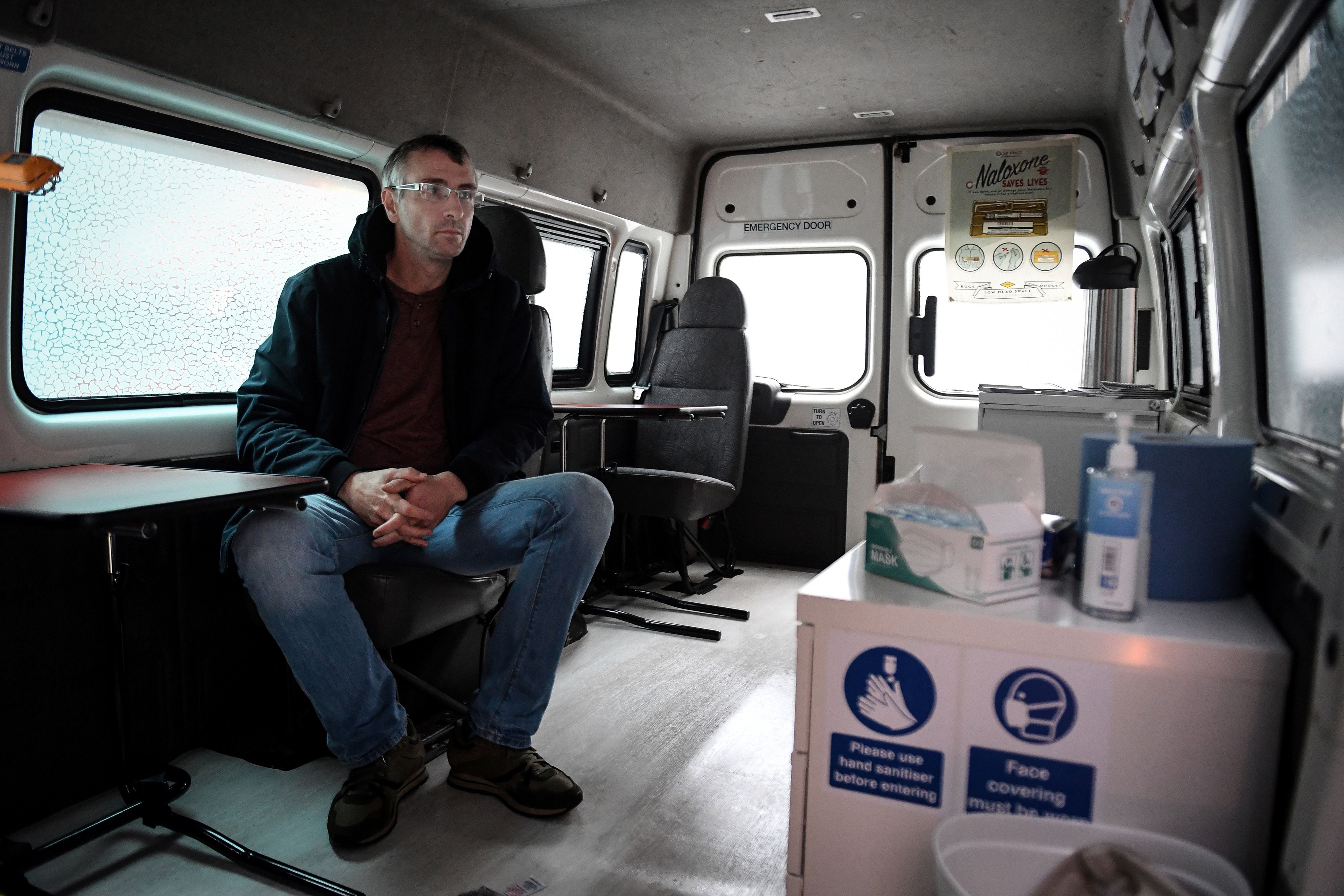Government accused of failing to tackle opioid crisis after failing to reassess life saving treatment centres
Exclusive: Minister admits no work done to assess benefit of centres used to save lives in 17 other countries

Your support helps us to tell the story
From reproductive rights to climate change to Big Tech, The Independent is on the ground when the story is developing. Whether it's investigating the financials of Elon Musk's pro-Trump PAC or producing our latest documentary, 'The A Word', which shines a light on the American women fighting for reproductive rights, we know how important it is to parse out the facts from the messaging.
At such a critical moment in US history, we need reporters on the ground. Your donation allows us to keep sending journalists to speak to both sides of the story.
The Independent is trusted by Americans across the entire political spectrum. And unlike many other quality news outlets, we choose not to lock Americans out of our reporting and analysis with paywalls. We believe quality journalism should be available to everyone, paid for by those who can afford it.
Your support makes all the difference.The government has been accused of negligence after it admitted failing to assess a life-saving service which could help combat the wave of lethally strong synthetic opioids sweeping the UK.
Experts have pleaded with ministers to back the use of drug consumption rooms – already used to reduce drug deaths in 17 other countries worldwide – as a tool to fight the looming crisis already claiming six lives a week in Britain, as new opioids contaminate supplies of heroin, and even illicit diazepam and vapes.
And a prospective Labour MP said she will absolutely be pushing for Sir Keir Starmer – if he wins the general election – to introduce the “crucial” services, where people can consume heroin in the presence of staff armed with the overdose-reversal drug naloxone.
Despite longstanding Westminster opposition, Scotland’s top legal authority has now paved the way for such services north of the border, with one desperate drug treatment service in Wales also seeking to take matters into their own hands to establish them.
Several councils in England and Wales have also approached experts for advice on how to set up the facilities, The Independent understands – amid concerns local authorities are being left by the government to “reinvent the wheel” in drawing up plans for how to respond to alerts of the new opioids in their areas.
The government has convened an urgent synthetic opioids taskforce in a bid to contain the threat of nitazenes – which can be up to 500 times stronger than heroin – as supplies of heroin dry up in Europe due to the Taliban’s opium crackdown in Afghanistan.
But asked by Labour’s Rachael Maskell about the life-saving facilities, Home Office minister Chris Philp said in a written response in May: “No recent assessment has been made of the impact of drug consumption rooms.”
“The government does not support drug consumption rooms,” wrote Mr Philp. “We have been clear that we have concerns about the potential for these facilities to condone drug use and to encourage the continued illicit supply of drugs. They will not be introduced in England and Wales.”
Martin Powell, of Transform Drugs Policy Foundation told The Independent it was “inexcusable and verging on negligent not to be reconsidering this proven intervention that’s saving lives across the world”.

In response to the opioid threat, ministers have unveiled plans to expand the drug treatment workforce and more widely distribute naloxone, in an effort to cut annual deaths by 1,000. Fatal overdoses have risen for 11 straight years in England and Wales, almost doubling in 10 years to hit nearly 5,000 in 2022.
But experts warn more action is needed, including the expansion of drug testing and needle exchange services, and heroin-assisted treatment – as well as the introduction of overdose prevention facilities used in countries such as the US, Canada, France, Australia and Iceland.
A major review found several of the 200 such facilities worldwide had individually reversed thousands of overdoses, without a single death or a rise in the number of drug users, while reducing or having no impact on crime levels, and often dramatically reducing drug-related litter and street injecting.
Describing the services as “crucial”, Ms Maskell warned nitazenes have already claimed lives in the York Central constituency she has represented since 2010.
“If we’re seeing it [in York], it’s going to be everywhere, so we really do need to have that harm reduction approach”, Ms Maskell told The Independent. “A drug consumption room is obviously one of those safety nets,” she said, adding she would “certainly” be pushing a Labour government to introduce them.

Sir Keir has refused to endorse such facilities in the past and Labour did not respond to a request for comment. The only reference to drug policy in its manifesto is in the context of prisons, drug dealing and cracking down on anti-social behaviour.
Mr Powell said he feared England’s 106 local multi-agency drugs units were being left to “reinvent the wheel” in drawing up plans for how to respond to nitazene alerts in their area in the absence of central government guidance.
Mr Philp wrote to these local groups in April, warning them of their “crucial” role in rapidly drawing up such plans in terms of preparation for an alert, monitoring of the illicit drugs supply, policing and treatment.
But in his letter, seen by The Independent, the minister wrote only that central government would look to review and assure local plans “over the coming months”.
“The government is basically washing its hands of what needs to be done at the local level – presumably so they can blame local authorities for not doing enough,” Mr Powell warned, urging ministers to set detailed recommendations of health interventions and their expected impacts.
“The reason they won’t do that is that they know, to have a realistic impact on the ground, they would have to back and fund measures like overdose prevention services, heroin prescribing clinics – the kinds of measures that essentially they’re ideologically opposed to, which are the only ones that are really going to make a difference,” he said.
And accusing Labour of having “completely failed to engage” with Transform on the issue, he warned that, if a Labour government does not hit the ground running, “they risk facing an unrivalled drugs death disaster that’s going to hit commmities from Cornwall to Aberdeen”.
Join our commenting forum
Join thought-provoking conversations, follow other Independent readers and see their replies
Comments